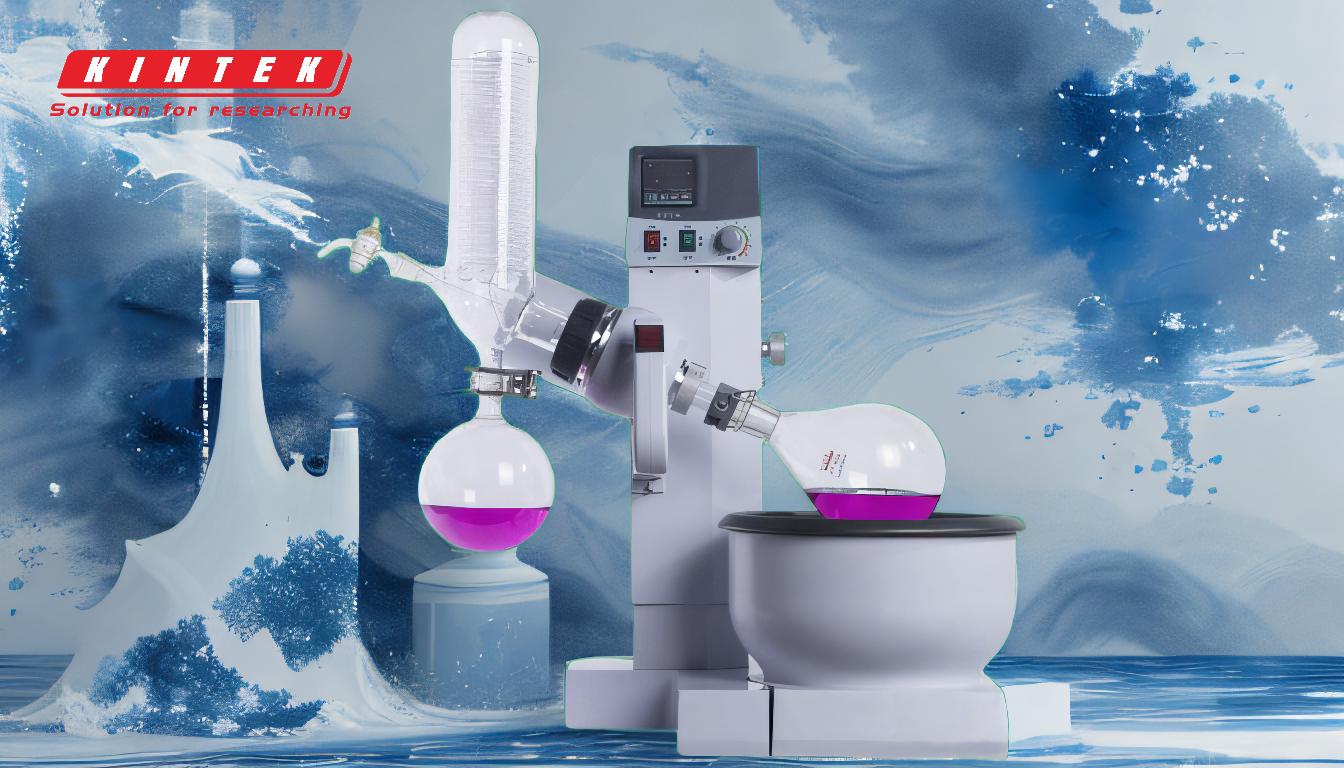A rotary evaporator, often referred to as a rotavap, is a laboratory device designed to efficiently remove solvents from samples through evaporation under reduced pressure. It is particularly useful for separating low-boiling solvents from mixtures containing compounds that are solid at room temperature and pressure. By lowering the pressure, the boiling point of the solvent is reduced, allowing for faster and more controlled evaporation. The rotary motion of the flask increases the surface area of the sample, enhancing the evaporation process. This method is widely used in organic laboratories because it is faster, more efficient, and less likely to cause thermal decomposition compared to traditional evaporation methods. Additionally, rotary evaporators are capable of handling larger volumes, making them versatile tools for various applications, including the extraction of delicate aroma compounds.
Key Points Explained:

-
Purpose of a Rotary Evaporator:
- The primary purpose of a rotary evaporator is to remove solvents from samples through evaporation under reduced pressure. This is particularly useful for separating low-boiling solvents from mixtures containing compounds that are solid at room temperature and pressure.
-
Efficiency in Solvent Removal:
- Rotary evaporators are more efficient than traditional evaporation methods under atmospheric pressure. By reducing the pressure, the boiling point of the solvent is lowered, allowing for quicker evaporation without the need to heat the sample to the solvent's boiling point at one atmosphere.
-
Mechanism of Operation:
- The device works by rotating the sample flask, which increases the effective surface area of the sample, thereby enhancing the evaporation process. The reduced pressure further aids in lowering the boiling point of the solvent, making the process faster and more controlled.
-
Applications in Organic Laboratories:
- Rotary evaporators are commonly found in organic laboratories due to their efficiency in removing solvents from reaction mixtures. They can handle volumes as large as 3 liters and are particularly useful for separating low-boiling solvents like ethyl acetate and n-hexane.
-
Handling High-Boiling Solvents:
- While rotary evaporators are excellent for low-boiling solvents, solvents with high boiling points, such as water or dimethylformamide (DMF), require a vacuum system capable of achieving sufficiently low pressure. Often, high-boiling solvents like water are removed using drying agents before using the rotavap.
-
Prevention of Thermal Decomposition:
- One of the significant advantages of using a rotary evaporator is that it minimizes the risk of thermal decomposition of the sample. By operating under reduced pressure, the solvent can be evaporated at lower temperatures, preserving the integrity of the sample.
-
Versatility in Applications:
- Rotary evaporators are not limited to organic laboratories. They are also used in the extraction of delicate aroma compounds, where higher heat from traditional distillation methods could degrade the compounds. This makes them suitable for use with solvents like alcohol or water.
-
Common Usage and Popularity:
- Due to their efficiency, speed, and ability to handle large volumes, rotary evaporators are widely used in various scientific and industrial applications. Their simplicity and effectiveness make them a staple in many laboratories.
In summary, a rotary evaporator is an essential tool in many laboratories, offering a quick, efficient, and gentle method for solvent removal. Its ability to operate under reduced pressure and handle large volumes makes it versatile for a wide range of applications, from organic chemistry to the extraction of delicate compounds.
Summary Table:
| Feature | Description |
|---|---|
| Purpose | Removes solvents from samples through evaporation under reduced pressure. |
| Efficiency | Faster and more controlled evaporation compared to traditional methods. |
| Mechanism | Rotates the flask to increase surface area, enhancing evaporation. |
| Applications | Organic labs, extraction of delicate aroma compounds, handling large volumes. |
| Handling High-Boiling Solvents | Requires a vacuum system for solvents like water or DMF. |
| Thermal Decomposition | Minimizes risk by operating at lower temperatures. |
| Versatility | Suitable for a wide range of solvents and applications. |
Discover how a rotary evaporator can optimize your lab processes—contact us today for expert advice!










